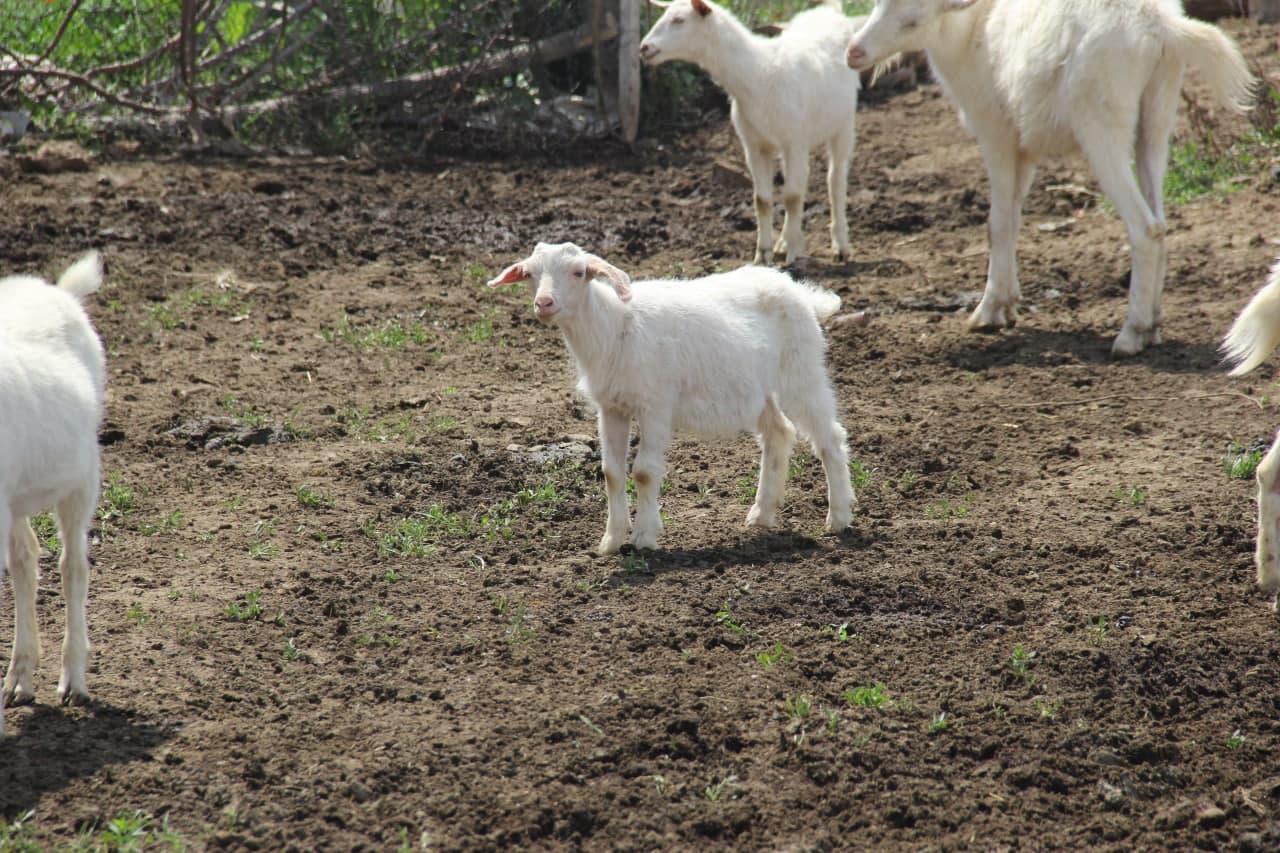Image: UNDP Uzbekistan
The Markaziy Kurgan VCC (Villagers Council of Citizens) in Akhangaran district is located on the slopes of the Ugam-Chatkal range of Western Tian-Shan. The villagers are mainly engaged in animal husbandry and partly in farming.
Cattle grazing on mountain pastures has been carried out in a semi-nomadic way with frequent pasture rotation, allowing the land to recover its natural state. But, unfortunately, the surroundings and, especially, areas close to local communities, turned into fields for regular livestock grazing, including goats. Among small ruminants, goats are the most harmful to pastures, as they destroy new seedlings by digging up the soil and eat grass seeds as well as roots, further reducing the chances of pasture restoration. Due to their ability to jump upward, goats eat the tops of the plants and some fruit trees, leading to their disease and death. On average, one goat eats two hectares of grass per year.

As goat milk is similar to human milk in terms of benefits and healing power, it is in high demand. Baraka Kavsar LLC currently breeds 196 Saanen dairy goats imported from Austria. Guided by the goal of implementing the practice of intensive livestock breeding in the mountainous and rural areas of Uzbekistan, providing the population with high-quality dietary and medicinal dairy products, the head of Baraka Kavsar LLC developed a goat farming project for stall-fed conditions. The project also provided for the cultivation of alfalfa on 50 hectares owned by Baraka Kavsar LLC, to reduce grazing in extensive pastures.
UNDP together with Baraka Kavsar LLC has built and launched an intensive stall-fed goat farm under the technical assistance program. The purpose of providing technical support is to develop and test practical measures for pasture restoration, forestry, and animal husbandry development, and the introduction of alternative activities as well to reduce pressure on natural forests and pastures.
 The farm employs five persons, including two women - milkmaids; increased the supply of dairy products with nutritional and medicinal values for local communities, especially for kids; and held demonstration workshops showing the benefits of intensive goat farming to local communities.
The farm employs five persons, including two women - milkmaids; increased the supply of dairy products with nutritional and medicinal values for local communities, especially for kids; and held demonstration workshops showing the benefits of intensive goat farming to local communities.
Owing to the implementation of this project, it is possible to reduce the load on 300 hectares of pastures per year by housing 200 goats, while the cultivation of own clover feed has a positive effect on soil fertility and further increased the environmental sustainability of the project. To date, the owner of Baraka Kavsar LLC is scaling up his business and is already actively negotiating with companies in Russia about the additional purchase of 150 Angora goats for further wool production.

 Locations
Locations

